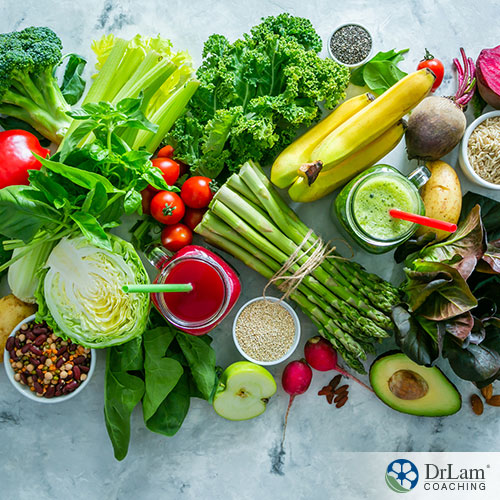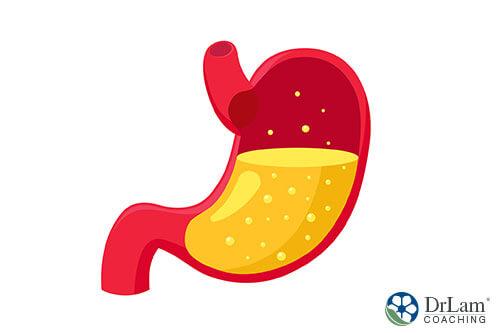The alkaline diet is currently on everyone’s lips. Many sources are now touting this diet as a credible cure to diseases, such as cancer. But, what is the alkaline diet? How does this diet work? Most importantly, does it really do all it is said to do? Keep reading as we explore the possible answers to these questions!
 The alkaline diet has much in common with numerous diets that emphasize fruits and vegetables. These alternate diets include the whole-food, plant-based diet, the flexitarian or flexible vegetarian diet, and the Mediterranean diet. However, the latter two diets allow for the consumption of certain animal-based protein, so they’re not entirely plant-based.
The alkaline diet has much in common with numerous diets that emphasize fruits and vegetables. These alternate diets include the whole-food, plant-based diet, the flexitarian or flexible vegetarian diet, and the Mediterranean diet. However, the latter two diets allow for the consumption of certain animal-based protein, so they’re not entirely plant-based.
The alkaline diet differs from other diets because it encourages eating fruits and vegetables that contribute towards an optimal pH throughout your body. This is based on the idea that whatever you ingest has an effect on your body’s pH, making it either alkaline or acidic. So, certain foods may promote an acidic environment, while others promote an alkaline environment.
Food can generally be divided into:
When measuring pH, a scale of 1 – 10 is used. While 7 is considered neutral, higher numbers indicate alkalinity and lower numbers refer to acidity. Therefore, the alkaline diet suggests that we focus on eating more alkaline foods and less acidic foods. This would allow our bodies to cultivate an alkaline environment. But, it’s not as simple as that.
Following the alkaline diet is not difficult at all. It simply means eating more alkaline foods while limiting your intake of acidic foods. In some ways, it is similar to the diet for recovery from adrenal fatigue. Here’s an example of what an alkaline diet looks like:
Your body tends to naturally regulate its alkalinity and acidity levels. There are certain areas that have a more acidic environment while others are more alkaline in nature. Let’s explore a few of these areas:
Your blood’s pH tends to be slightly alkaline since it has a pH between 7.26 and 7.44. If your blood’s pH falls outside of these parameters, then you can begin to experience health issues.
One of these is a condition known as metabolic ketoacidosis. In this case, there’s an imbalance of the acids and basis in your blood. Your body then makes too much acid, which it can’t get rid of, and so the imbalance occurs.
The causes of this condition include:
 Your stomach has an acidic environment with a pH that fluctuates between 2 and 3.5. This acidity is required to break up food during digestion. An acidic pH is also needed for the healthy gut microbiome.
Your stomach has an acidic environment with a pH that fluctuates between 2 and 3.5. This acidity is required to break up food during digestion. An acidic pH is also needed for the healthy gut microbiome.
Your gastric juice consists of several components:
Many of the different components in your gastric juices are only activated in an acidic environment.
Your skin is quite acidic. This acidity helps to protect you against potentially harmful bacterial and fungal invasions. Your sweat, together with sebum, forms what is known as the acid mantle. This mantle has a pH of between 4 and 5.5. If your skin’s pH becomes less acidic, it results in some inflammatory skin conditions. These include atopic dermatitis, irritant contact dermatitis, rosacea, acne, acne, and ichthyosis. A dryer, aging skin may also result.
The research about the alkaline diet and its impact are conflicting. Some studies find it beneficial, while others say it may have a limited or no impact. Much of this research focuses on the potential renal acid load (PRAL) of foods and how they affect the pH of your urine.
Studies have explored the impact of diet on heart health. One study found that people with high PRAL tend to have an increase in cardiovascular disease. However, a different study found that people with a neutral diet had the longest longevity. In addition, both groups following a high alkaline and high acid diet had higher mortality rates. Yet another study found a higher mortality rate in those who followed a high alkaline diet.
A three-year clinical trial showed that fruits and vegetables high in potassium could help you maintain muscle mass as you age. However, another study found that it could make a small yet significant contribution in this regard.
There may be hope for diabetics on an alkaline diet. A study found that acid-based diets increase your risk of diabetes. Such diets may also be linked to insulin resistance.
Another study found that an acidic diet may be associated with a higher risk of kidney disease. The higher magnesium and vegetable protein sources associated with an alkaline diet may protect against this condition.
 Inflammation and diet are closely related. Many studies indicate that the modern American diet (consisting of processed foods, high sugar, and sodium content) may be at fault. Poor diets contribute to many of the inflammatory health conditions that are prevalent in today’s society.
Inflammation and diet are closely related. Many studies indicate that the modern American diet (consisting of processed foods, high sugar, and sodium content) may be at fault. Poor diets contribute to many of the inflammatory health conditions that are prevalent in today’s society.
Certain aspects of the alkaline diet (such as consuming fresh fruit and vegetables) may contribute to your overall health. Your body will get all the vitamins, minerals, and nutrients it needs.
Inflammation is a typical response to stress and it is influenced by your immune response. What you eat can also cause stress on your body. Chemical messengers are sent throughout your body via the Hypothalamic-Pituitary-Axis (HPA). In addition, the NeuroEndoMetabolic (NEM) stress response works by protecting your body while actively resolving the stressors.
Some of the health issues that exhibit inflammation include:
Inflammation is a basic function of your immune system. Most inflammatory conditions tend to start in your digestive tract. But, inflammation in your digestive tract can quickly spin out of control, and affect your entire body. This is due to the permeability of your digestive tract’s lining that allows food to enter the bloodstream. However, if this lining becomes compromised, foreign pathogens and toxins could also enter your bloodstream. This then triggers an inflammatory response which could become systemic in nature.
Conventional medicine would address the different symptoms associated with inflammation. A more holistic approach, on the other hand, may look at the source. One of these sources may very well be your diet.
It is important to remember that not everyone does well with an alkaline diet. Some people’s bodies are slightly acidic in nature, so they tend to do well with an alkaline diet. Persons suffering from Adrenal Fatigue Syndrome (AFS) are especially are at risk because the body’s internal ecosystem tends to be imbalanced. The slightest change in pH can trigger adrenal crashes. The more advanced the AFS, then the greater the risk. If you have AFS, do not assume that an alkaline diet is good just because it works well for others. Always consult a medical practitioner that is an AFS expert before starting any diet.
 There is enough evidence to support and criticize the alkaline diet and its claims to address certain health issues. However, its emphasis on fruits and vegetables is beneficial. Such a diet gives your body the nutrients it needs to help stave off inflammation and other health conditions.
There is enough evidence to support and criticize the alkaline diet and its claims to address certain health issues. However, its emphasis on fruits and vegetables is beneficial. Such a diet gives your body the nutrients it needs to help stave off inflammation and other health conditions.
© Copyright 2020 Michael Lam, M.D. All Rights Reserved.
There are numerous reasons why we tend to gain weight. Diet probably plays a major role. The alkaline diet emphasizes eating fruits and vegetables while limiting fat intake from protein sources. A diet high in fruits and vegetables could potentially help with weight loss.
